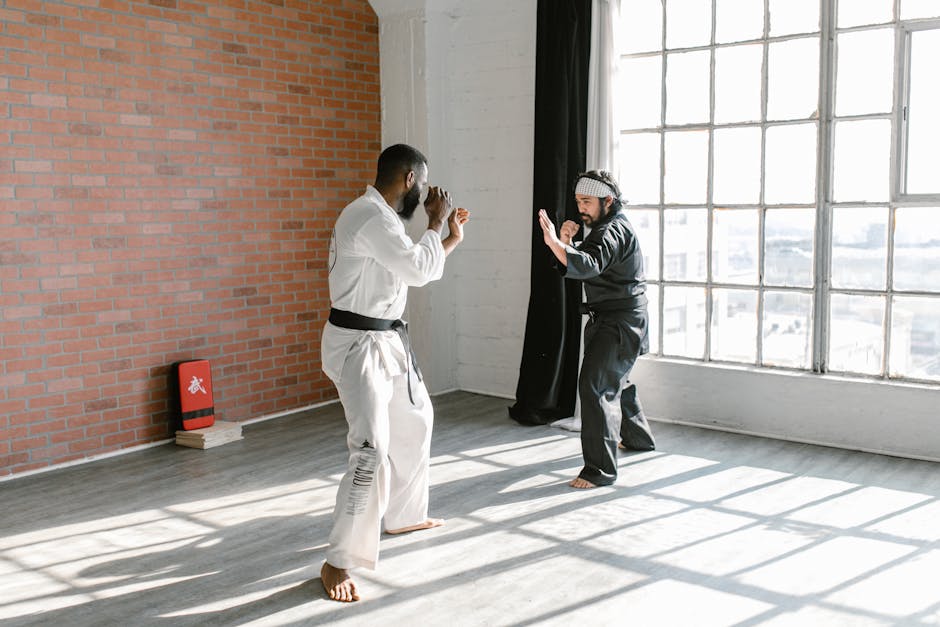Self-discipline is the foundation of every meaningful achievement and the secret ingredient behind lasting personal growth. At Self IQ, we believe that smarter growth and a stronger you begin with mastering the art of self-discipline. Whether you want to reach your career goals, improve your health, or simply live a more focused and fulfilling life, developing self-discipline is the first step toward unlocking your full potential.
What Is Self-Discipline and Why Does It Matter?

Self-discipline is the ability to control your impulses, emotions, and behaviors to align with your long-term objectives, even when faced with temptations or distractions. It’s about making conscious choices that support your values and goals, rather than giving in to immediate desires. Think of self-discipline as a mental muscle: the more you exercise it, the stronger it becomes, empowering you to persist in the face of challenges and setbacks.
The importance of self-discipline cannot be overstated. It is the engine behind progress in every area of life. With self-discipline, you can resist short-term temptations, overcome procrastination, and stick to routines that foster growth. The benefits extend beyond productivity: self-discipline reduces anxiety, increases resilience, and enhances overall happiness by helping you feel more in control of your life. Ultimately, it’s the skill that transforms intentions into actions and dreams into reality.
The Science Behind Self-Discipline

Photo by cottonbro studio on Pexels
Understanding the psychological and neurological mechanisms behind self-discipline can demystify the process and make it more accessible. Self-discipline is closely linked to executive function, a set of mental skills that include working memory, flexible thinking, and self-control. These functions are primarily managed by the prefrontal cortex, the brain region responsible for planning and decision-making.
Research shows that self-discipline is not an innate trait but a skill that can be developed over time. Neural pathways strengthen with repeated practice, making disciplined behaviors more automatic. This process, known as neuroplasticity, means that anyone can cultivate greater self-discipline, regardless of their starting point. By understanding how habits are formed and how willpower works, you can design strategies that make self-discipline easier and more sustainable.
Common Obstacles to Self-Discipline

Photo by Анна Рыжкова on Pexels
Despite its importance, many people struggle with self-discipline due to a variety of internal and external obstacles. Common barriers include:
- Instant Gratification: The temptation to seek immediate pleasure can override long-term goals.
- Lack of Clarity: Unclear goals make it difficult to maintain focus and motivation.
- Negative Self-Talk: Limiting beliefs and self-doubt can sabotage efforts to stay disciplined.
- Environmental Distractions: A cluttered or chaotic environment makes it harder to concentrate and follow through.
- Fatigue and Stress: Physical and emotional exhaustion depletes willpower, making self-control more challenging.
Recognizing these obstacles is the first step toward overcoming them. By identifying your personal triggers and patterns, you can develop targeted strategies to stay on track, even when motivation wanes.
Building Self-Discipline: Practical Strategies That Work

Developing self-discipline is a gradual process that requires intention, persistence, and the right techniques. Here are practical strategies to help you strengthen your self-discipline muscle:
- Set Clear, Specific Goals: Define what you want to achieve and break it down into manageable steps. Clarity fuels motivation and makes progress measurable.
- Create Routines and Habits: Consistency is key. Establish daily routines that support your goals, and automate positive behaviors to reduce reliance on willpower.
- Use Implementation Intentions: Plan for obstacles by deciding in advance how you’ll respond to challenges. For example, “If I feel tempted to skip my workout, I’ll remind myself of my long-term health goals.”
- Track Your Progress: Monitoring your actions reinforces accountability and highlights areas for improvement.
- Practice Delayed Gratification: Train yourself to wait for rewards. Start small by delaying minor pleasures, and gradually build up your tolerance for discomfort.
- Remove Temptations: Make disciplined choices easier by minimizing distractions and creating an environment that supports your intentions.
- Practice Self-Compassion: Forgive yourself for setbacks and focus on learning rather than self-criticism. Growth is a journey, not a destination.
By integrating these strategies into your daily life, you can steadily build the self-discipline needed to achieve your most ambitious goals.
Self-Discipline in Action: Real-Life Examples

Photo by Manish Jangid on Pexels
To illustrate the transformative power of self-discipline, consider these real-life scenarios:
- The Student: A student who practices self-discipline resists the urge to procrastinate, sticks to a study schedule, and consistently reviews material. Over time, these habits lead to higher grades and increased confidence.
- The Professional: An employee who exercises self-discipline manages time effectively, avoids distractions, and meets deadlines. This reliability earns trust and opens doors for career advancement.
- The Athlete: An athlete who commits to regular training, healthy eating, and sufficient rest outperforms peers who rely solely on talent. Discipline turns potential into achievement.
- The Entrepreneur: A business owner who sets clear priorities, manages resources wisely, and perseveres through setbacks is more likely to build a successful enterprise.
These examples demonstrate that self-discipline is not about perfection but about consistent effort. It’s the daily choices and small wins that accumulate into remarkable results.
Self-Discipline vs. Motivation: Understanding the Difference

Photo by Gerd Altmann on Pexels
While motivation is the spark that ignites action, self-discipline is the fuel that keeps you going when motivation fades. Motivation is often fleeting, influenced by emotions and external circumstances. Self-discipline, on the other hand, is a reliable internal resource that enables you to act regardless of how you feel.
Relying solely on motivation can lead to inconsistency and frustration. Developing self-discipline ensures that you can maintain progress even on days when you’re tired, stressed, or uninspired. By shifting your focus from waiting for motivation to building disciplined habits, you create a sustainable path to success.
Tools and Techniques to Strengthen Self-Discipline

Photo by RDNE Stock project on Pexels
There are numerous tools and techniques that can make the journey toward greater self-discipline smoother:
- Journaling: Reflecting on your goals, progress, and setbacks helps reinforce accountability and self-awareness.
- Time Management Apps: Digital tools can help you structure your day, set reminders, and track habits.
- Mindfulness Practices: Techniques such as meditation and deep breathing enhance focus and emotional regulation.
- Accountability Partners: Sharing your goals with a trusted friend or mentor increases commitment and provides support.
- Reward Systems: Celebrate milestones to reinforce positive behaviors and maintain motivation.
Experiment with different approaches to find what works best for you. The key is to be intentional and adaptable, adjusting your strategies as you grow.
How to Maintain Self-Discipline Over the Long Term

Photo by suntorn somtong on Pexels
Maintaining self-discipline is an ongoing process that requires vigilance and adaptability. Here are some tips for sustaining your progress:
- Review Your Goals Regularly: Revisit your objectives to stay aligned with your values and priorities.
- Anticipate Challenges: Identify potential obstacles in advance and develop contingency plans.
- Celebrate Progress: Acknowledge your achievements, no matter how small, to reinforce your commitment.
- Stay Flexible: Life is unpredictable. Be willing to adjust your plans without losing sight of your overarching goals.
- Seek Support: Surround yourself with people who encourage your growth and hold you accountable.
Remember, self-discipline is not about rigid self-denial but about making choices that empower you. By staying mindful and proactive, you can maintain the habits and mindset needed for lifelong success.
The Lasting Rewards of Self-Discipline

Photo by Andrea Piacquadio on Pexels
The journey of cultivating self-discipline is challenging but immensely rewarding. As you strengthen your self-discipline, you’ll notice profound changes in every area of your life:
- Increased Productivity: You accomplish more with less stress.
- Greater Confidence: Each disciplined choice builds self-trust and self-esteem.
- Better Relationships: Discipline helps you communicate effectively and honor commitments.
- Enhanced Well-Being: Healthy routines support mental, emotional, and physical health.
- Fulfillment: Achieving your goals brings a deep sense of satisfaction and purpose.
Ultimately, self-discipline is the key to smarter growth and a stronger you. By mastering yourself, you unlock the freedom to pursue your dreams and live life on your own terms. The journey begins with a single step—start today, and watch your potential unfold.
Sources
- https://study.com/learn/lesson/what-is-self-discipline.html
- https://www.mindtools.com/adjf7nz/self-discipline
- https://www.berkeleywellbeing.com/self-discipline.html
- https://focuskeeper.co/glossary/what-is-self-discipline-techniques
- https://www.betterup.com/blog/how-to-be-disciplined




